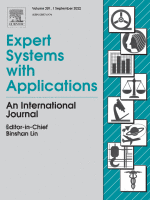Featured Scientist

Chi-Jie Lu
Chi-Jie Lu
Graduate Institute of Business Administration, Fu Jen Catholic University, New Taipei City 24205, Taiwan
Article published in
"Expert Systems with Applications" 201, 1 September 2022, 117234
Impact of carbon emission policy combinations on the optimal production-inventory decisions for deteriorating items
This study is the first to propose a cross-border production-inventory model for deteriorating items under different carbon emission policy combinations by considering a global supply chain system with a single manufacturer from abroad and a single domestic retailer. An integrated three-stage supply chain that includes material supply, manufacturer’s production and delivery, and retailer’s ordering and sales is designed. Two carbon policy combinations are considered: (1) the manufacturer faces a carbon cap-and-trade policy, and the retailer faces a carbon tax policy; (2) the manufacturer faces a carbon tax policy and the retailer faces a carbon cap-and-trade policy. The main purpose is to determine the optimal material supply, production, and delivery strategies for the manufacturer and the optimal replenishment strategies for the retailer to maximize the joint total profit of the supply chain in each situation, while observing the solutions’ carbon reduction benefits. This study uses mathematical programming to find optimal solutions for the manufacturer and the retailer, with numerical examples presented to demonstrate the solution procedures for comparing different carbon policy combinations. The results show that under different policy combinations, fluctuations in carbon prices, carbon taxes, and exchange rates have different effects on the profits of the entire supply chain and each member, as well as the carbon reduction’s social benefits. This is expected to provide enterprise or supply chain decision makers, especially in multinational enterprises, with valuable references for opting for a green supply chain.[Link to this article...]

41 views